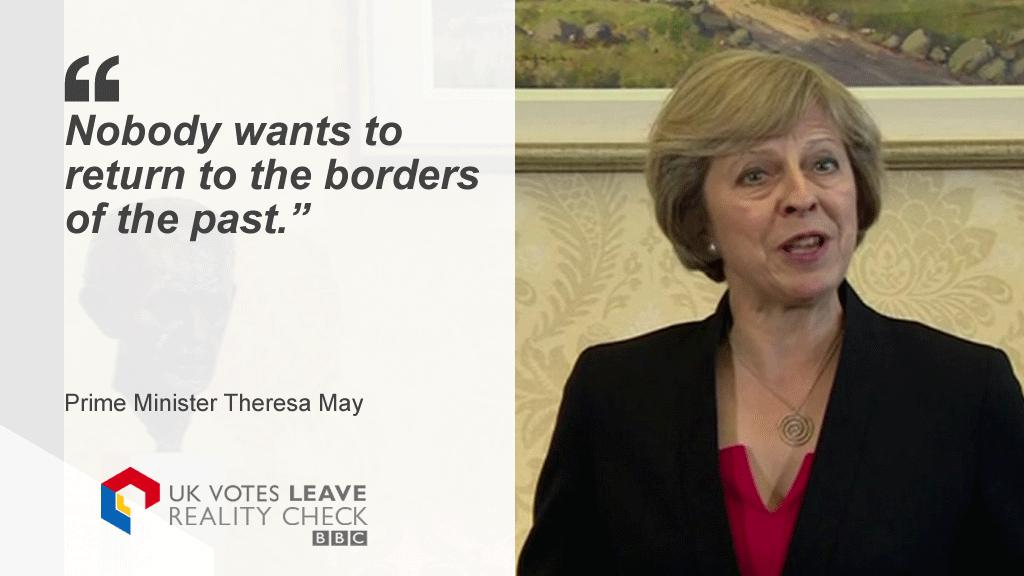Leo Varadkar warns 'clock is ticking' on Brexit talks
- Published
- comments
The taoiseach said Brexit was 'the challenge of this generation'
Irish Prime Minister Leo Varadkar has called for "unique solutions" to preserve the relationship between the UK and the European Union after Brexit.
On his first official visit to Northern Ireland, he raised the possibility of a bilateral UK-EU customs union.
The taoiseach described Brexit as "the challenge of this generation".
In response, the UK Government said it wanted a special partnership with the EU, including an "ambitious free trade agreement and a customs agreement".
Speaking to an invited audience at Queen's University, Belfast, Mr Varadkar said: "Every single aspect of life in Northern Ireland could be affected by Brexit."
Those who favour a hard Brexit have already had 14 months to come up with a plan, he warned.
"If they cannot, and I believe they cannot, we can then talk meaningfully about solutions that might work for all of us," he said.
"The Brexit negotiations are well under way in Brussels. And, to quote (EU chief Brexit negotiator) Michel Barnier, the clock is ticking."
Mr Varadkar offered two of his own suggestions:
The possibility of an EU-UK customs union if the UK wants to remain in the customs union
A "deep free trade agreement" with the EU if the UK does not want to stay in the single market, with the possibility of its rejoining EFTA (European Free Trade Association)
The taoiseach referred to the lack of input into the Brexit debate from Northern Ireland due to the collapse of the Stormont executive, and urged politicians to do a deal to restore power-sharing.
"We need an answer to the question of who we - and others in Europe - talk to in Belfast," he said. "Who will speak for Northern Ireland and her 1.8 million people?"
'Barrier to trade'
Mr Varadkar said: "It will come as no surprise to anyone here that I do not want there to be an economic border on our island, nor do I want one between Ireland and Britain.
A hard Irish border is 'not feasible', outgoing Irish ambassador to the UK Daniel Mulhall told the Today programme
"By economic border, I am not talking about currency or variation in tax rates.
"I am talking about a barrier to free trade and commerce."
In response, the UK Government said no-one wanted a return to a hard border.
"We are clear that the border must be as seamless and frictionless as possible for trade, and that we must preserve the Common Travel Area between the UK and Ireland," said a government statement.
"That is why we are prioritising this issue in our negotiations."
Former Northern Ireland Secretary Owen Paterson said 17.4m people voted to leave the EU and that meant leaving the single market and customs union.
"We know perfectly well that there are heads of member states that did not like the Brexit result," the Conservative MP told BBC Radio 4's World at One.
"We know that the political establishment in Dublin is not happy with the fact that the UK voted to leave the EU.
"But all these stories surrounding the border are massively exaggerated when we have modern technology."
Belfast Pride
On Friday afternoon, the taoiseach met members of Northern Ireland's political parties, including representatives from the DUP, Sinn Féin, the SDLP and Alliance.
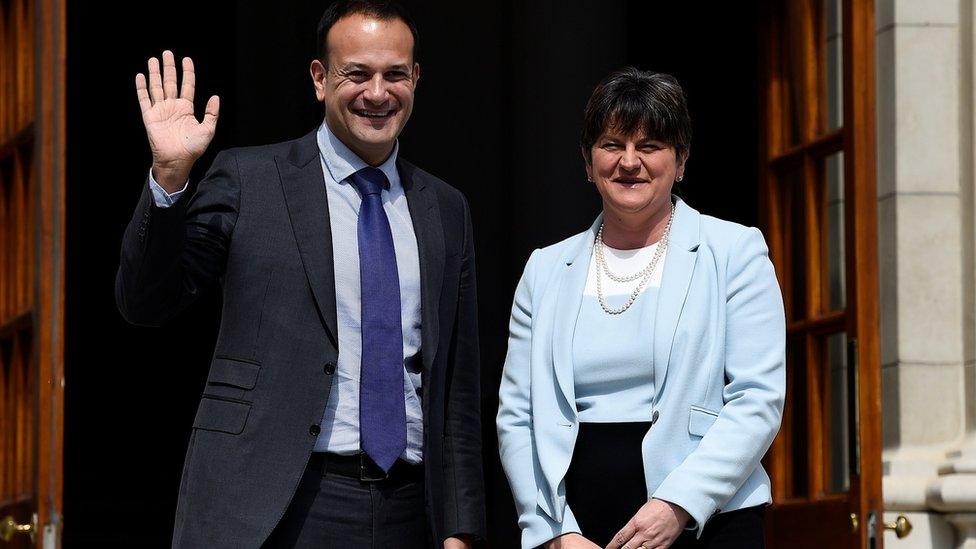
Leo Varadkar and DUP Arlene Foster met in Dublin on 16 June
His meeting with DUP leader Arlene Foster came days after a row between the party and the taoiseach over the Irish border post-Brexit.
But Mrs Foster told the BBC she had thanked the taoiseach for "discounting" the idea of a border along the Irish sea.
"There have been some very unhelpful interventions from some of his party members, but he is very clear he's not in favour of such a border," she said.
"Given the amount of trade that flows, not just from from Northern Ireland into Great Britain but also from the Republic of Ireland, to suggest such a border would have been madness from their perspective".
She also hit out at what she described as Sinn Féin's "very hardline commentary" in recent months, saying the party had showed no willingness to move from their stated positions.
"If they continue with that, we won't have devolution back, and that's a tragedy for all the people of Northern Ireland," said Mrs Foster.
Remnants of the old order?
For his part, Sinn Féin leader Gerry Adams said his party was in "total agreement with the Irish government" on the need for the institutions at Stormont to be back in place.
"The majority of people here voted against Brexit," he said. "What this all boils down to is whether unionism is clinging to the remnants of the old order or whether it's prepared to accept that this state has changed utterly."
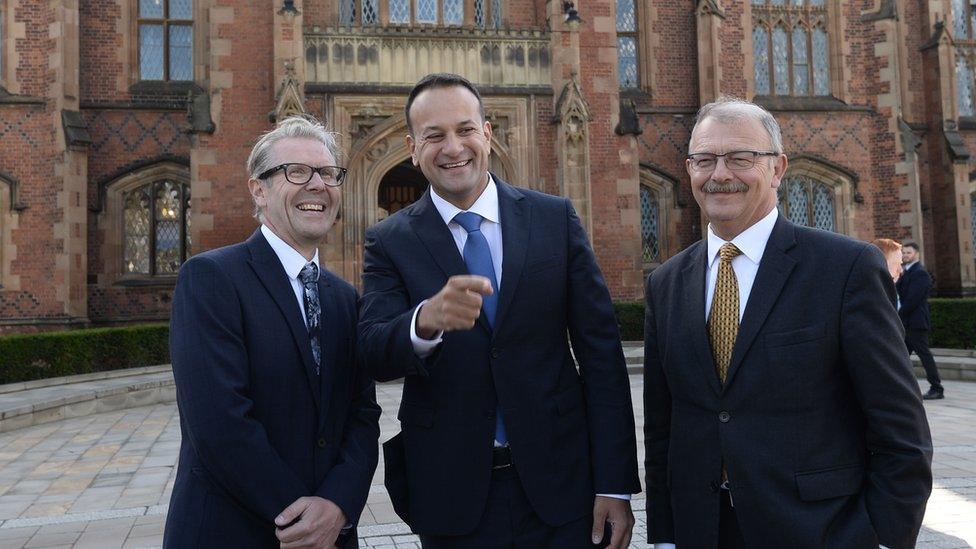
Leo Varadkar went to Queen's University for his first engagement in Northern Ireland
SDLP leader Colum Eastwood criticised both the DUP and Sinn Féin for failing to reach a compromise that would see power-sharing restored at Stormont.
"There's an enormous battle going on right now to try to protect Northern Ireland's position in the customs union, the single market and the common travel area and we don't have a voice," he said.
"It's a serious dereliction of duty by the parties who got the big mandates in the last election.
"It is up to them to do the job."
Alliance Party leader Naomi Long said that their meeting with the taoiseach had been "very constructive" and that the party and Mr Varadkar were both "reasonably optimistic" that the assembly could be restored in the autumn.
"We need to come back now with the will to deliver for people, because our focus has to be on the people we represent not on any sacred cows that we set up as individual parties that make it more difficult for us to do that job."
Mr Varadkar had said he would not design a border for Brexiteers, but DUP MP Jeffrey Donaldson said that "megaphone diplomacy from Dublin" would not sort out the border issue.
On Saturday, Mr Varadkar, who is the Republic of Ireland's first openly gay taoiseach, will attend an event as part of Belfast's gay pride festival.
- Published20 March 2024
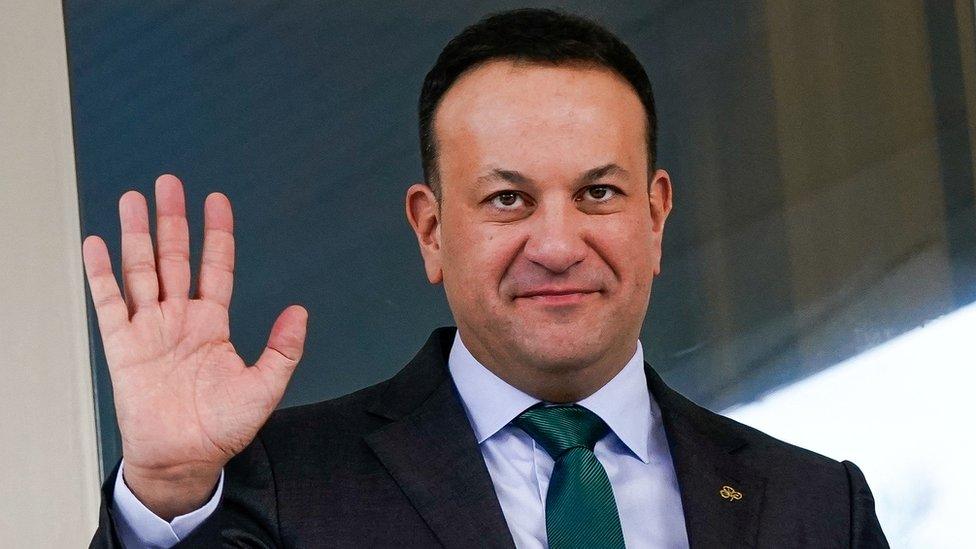
- Published1 August 2017
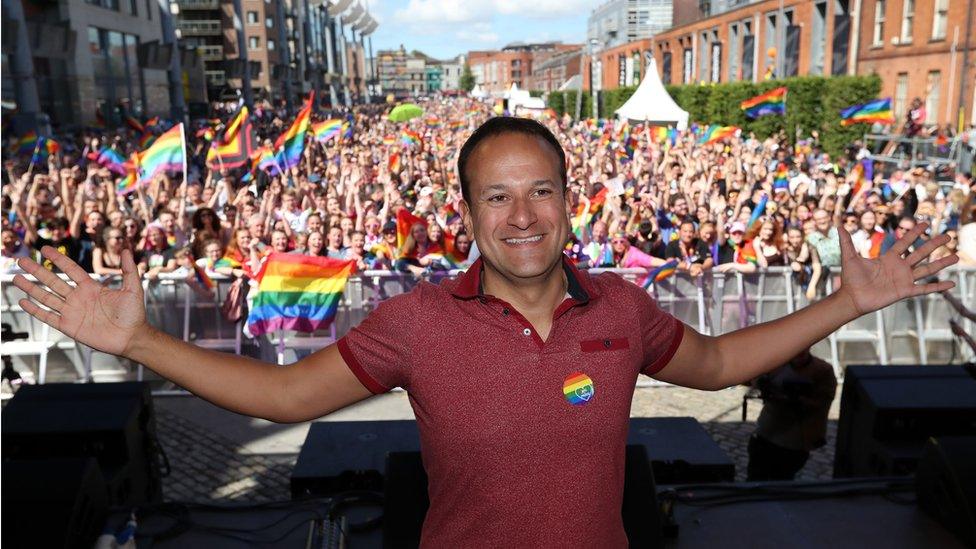
- Published1 August 2017
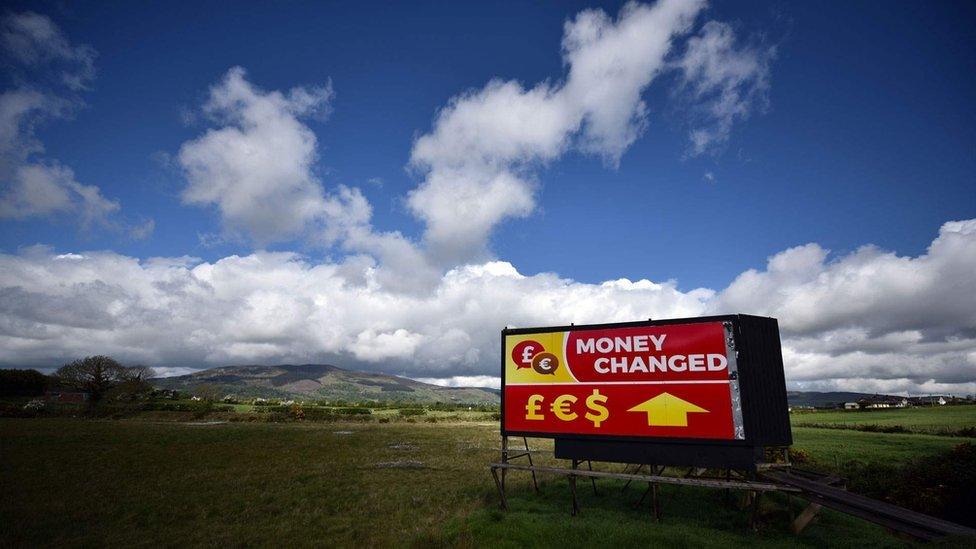
- Published28 July 2017
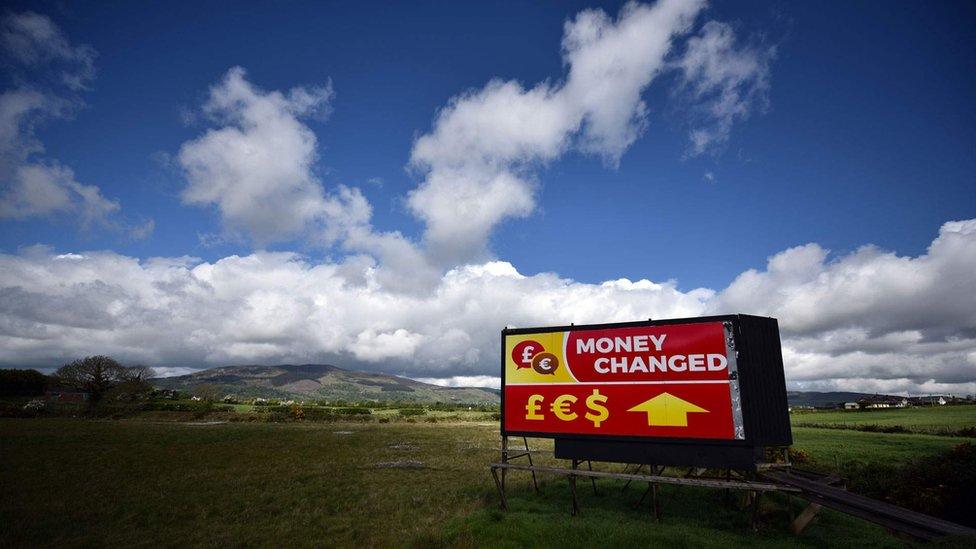
- Published25 July 2016
